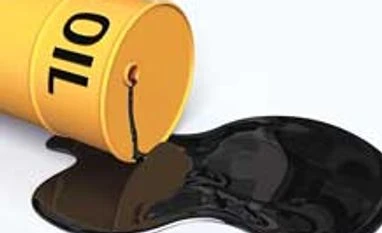The Organization of the Petroleum Exporting Countries (Opec's) oil supply in April has jumped to its highest in more than two years, boosted by record or near-record supplies from Iraq and Saudi Arabia, a Reuters survey showed, as key members stand firm in their focus on market share.
Opec's output further above forecasts of demand for Opec oil in the first half of the year, although second-half demand is expected to be stronger. Opec supply has risen in April to 31.04 million barrels per day (bpd) from a revised 30.97 million bpd in March, according to the survey, based on shipping data and information from sources at oil companies, opec and consultants.
"We are in an oversupplied market, and this oversupply is unlikely to disappear any time soon," said Eugen Weinberg, analyst at Commerzbank in Frankfurt.
Besides Iraq, the main reasons for the rise are higher Nigerian exports and a further small gain in Libyan production despite the unrest there. Top exporter Saudi Arabia has kept output near a record high in April, sources in the survey said.
Iraq has increased its northern exports further following a deal between Baghdad and the Kurdistan Regional Government, offsetting a slight decline in flows from the south which produces the bulk of Iraq's oil.
Based on this survey, Iraqi exports this month look set to exceed March's record high of 2.98 million bpd. Iraq was hoping to reach 3.1 million bpd of exports in April.
Opec's largest African producer Nigeria has shipped more cargoes in April, helped by a return to a more typical export rate from its largest crude steam, Qua Iboe.
Iran increased exports as some buyers who stayed away in March in response to US pressure during negotiations on a preliminary nuclear deal, resumed purchases in April, sources in the survey said.
There was not a corresponding increase in Iranian production in April, sources said, as the extra barrels were shipped from storage.
Saudi Arabian output dipped after a rise in March to a record high, the survey found, but remained above 10 million bpd due to increased local requirements in power plants.
Saudi Oil Minister Ali al-Naimi said April output was "around" 10 million bpd.
Riyadh was the driving force behind Opec's refusal last year to prop up prices by cutting its output target of 30 million bpd, in a bid to discourage more costly rival supplies.
Of countries with lower output, the biggest decline was in Opec's other West African producer, Angola, where outages at BP's Saturno and Plutonio fields contributed to the drop.
Opec holds its next meeting on June 5, and comments from Opec officials suggest it will keep output policy unchanged.
Opec's output further above forecasts of demand for Opec oil in the first half of the year, although second-half demand is expected to be stronger. Opec supply has risen in April to 31.04 million barrels per day (bpd) from a revised 30.97 million bpd in March, according to the survey, based on shipping data and information from sources at oil companies, opec and consultants.
"We are in an oversupplied market, and this oversupply is unlikely to disappear any time soon," said Eugen Weinberg, analyst at Commerzbank in Frankfurt.
More From This Section
If the total remains unrevised, April's supply would be Opec's highest since 31.06 million bpd in November 2012, based on Reuters surveys.
Besides Iraq, the main reasons for the rise are higher Nigerian exports and a further small gain in Libyan production despite the unrest there. Top exporter Saudi Arabia has kept output near a record high in April, sources in the survey said.
Iraq has increased its northern exports further following a deal between Baghdad and the Kurdistan Regional Government, offsetting a slight decline in flows from the south which produces the bulk of Iraq's oil.
Based on this survey, Iraqi exports this month look set to exceed March's record high of 2.98 million bpd. Iraq was hoping to reach 3.1 million bpd of exports in April.
Opec's largest African producer Nigeria has shipped more cargoes in April, helped by a return to a more typical export rate from its largest crude steam, Qua Iboe.
Iran increased exports as some buyers who stayed away in March in response to US pressure during negotiations on a preliminary nuclear deal, resumed purchases in April, sources in the survey said.
There was not a corresponding increase in Iranian production in April, sources said, as the extra barrels were shipped from storage.
Saudi Arabian output dipped after a rise in March to a record high, the survey found, but remained above 10 million bpd due to increased local requirements in power plants.
Saudi Oil Minister Ali al-Naimi said April output was "around" 10 million bpd.
Riyadh was the driving force behind Opec's refusal last year to prop up prices by cutting its output target of 30 million bpd, in a bid to discourage more costly rival supplies.
Of countries with lower output, the biggest decline was in Opec's other West African producer, Angola, where outages at BP's Saturno and Plutonio fields contributed to the drop.
Opec holds its next meeting on June 5, and comments from Opec officials suggest it will keep output policy unchanged.
)